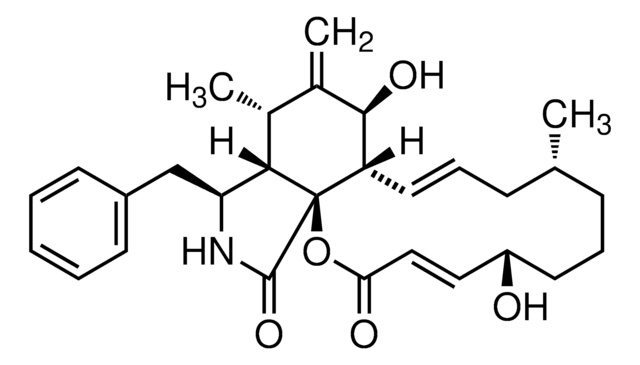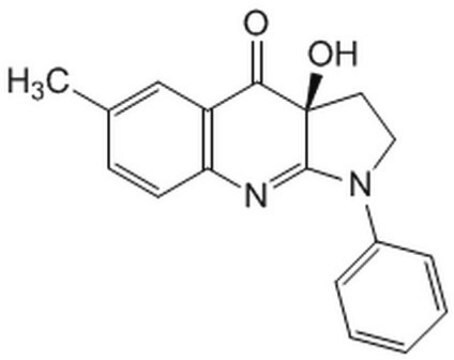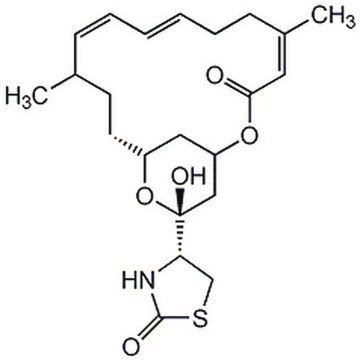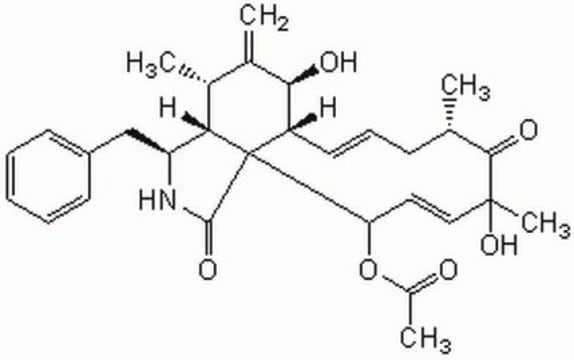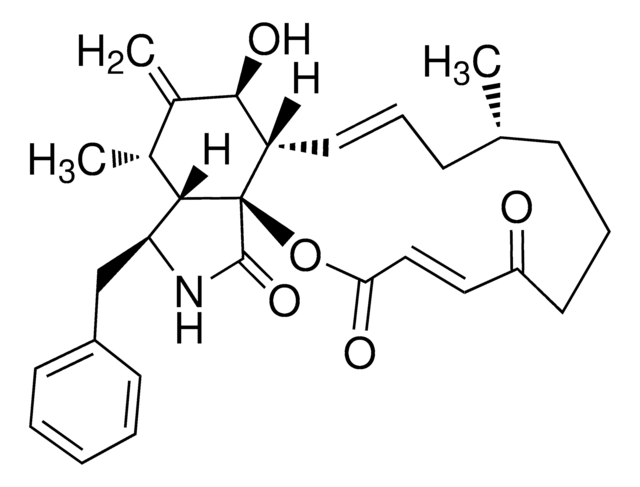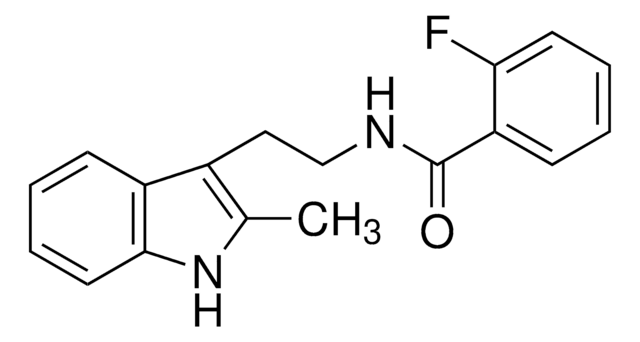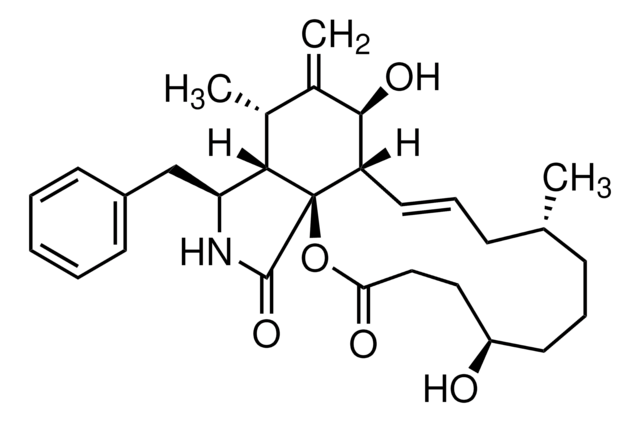C8273
Cytochalasin D
from Zygosporium mansonii, ≥98% (TLC and HPLC), powder
Synonym(s):
Lygosporin A, Zygosporin A
About This Item
Recommended Products
biological source
Zygosporium mansonii
Quality Level
assay
≥98% (TLC and HPLC)
form
powder
solubility
DMSO: soluble
ethanol: soluble
antibiotic activity spectrum
fungi
mode of action
DNA synthesis | interferes
storage temp.
−20°C
SMILES string
[H][C@@]12[C@H](C)C(=C)[C@@H](O)[C@@H]3\C=C\C[C@H](C)C(=O)[C@](C)(O)\C=C\[C@@H](OC(C)=O)[C@@]13C(=O)N[C@H]2Cc4ccccc4
InChI
1S/C30H37NO6/c1-17-10-9-13-22-26(33)19(3)18(2)25-23(16-21-11-7-6-8-12-21)31-28(35)30(22,25)24(37-20(4)32)14-15-29(5,36)27(17)34/h6-9,11-15,17-18,22-26,33,36H,3,10,16H2,1-2,4-5H3,(H,31,35)/b13-9+,15-14+/t17-,18+,22-,23-,24+,25-,26+,29+,30+/m0/s1
InChI key
SDZRWUKZFQQKKV-JHADDHBZSA-N
Looking for similar products? Visit Product Comparison Guide
General description
Application
- to treat H9c2 cells to study the relationship between cell stiffness and the F-actin cytoskeleton
- as inhibitor of receptor-mediated endocytosis to treat oligodendrocyte precursor cells (OPCs) to investigate the effect of inhibiting specific extracellular vesicle (EV) uptake pathways
- in in vitro embryo culture to artificially activate oocytes
Biochem/physiol Actions
related product
signalword
Danger
hcodes
Hazard Classifications
Acute Tox. 2 Oral
Storage Class
6.1A - Combustible acute toxic Cat. 1 and 2 / very toxic hazardous materials
wgk_germany
WGK 3
ppe
Eyeshields, Faceshields, Gloves, type P3 (EN 143) respirator cartridges
Choose from one of the most recent versions:
Certificates of Analysis (COA)
Don't see the Right Version?
If you require a particular version, you can look up a specific certificate by the Lot or Batch number.
Already Own This Product?
Find documentation for the products that you have recently purchased in the Document Library.
Customers Also Viewed
Articles
High titer lentiviral particles including beta-actin, alpha-tubulin and vimentin used for live cell analysis of cytoskeleton structure proteins.
Our team of scientists has experience in all areas of research including Life Science, Material Science, Chemical Synthesis, Chromatography, Analytical and many others.
Contact Technical Service